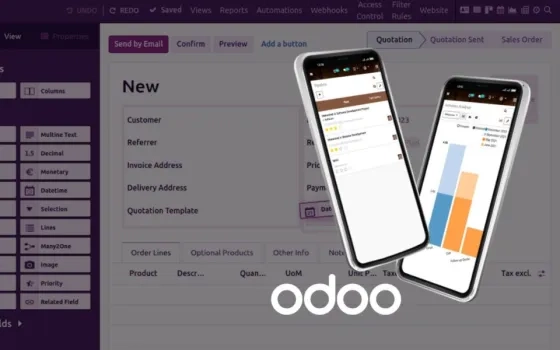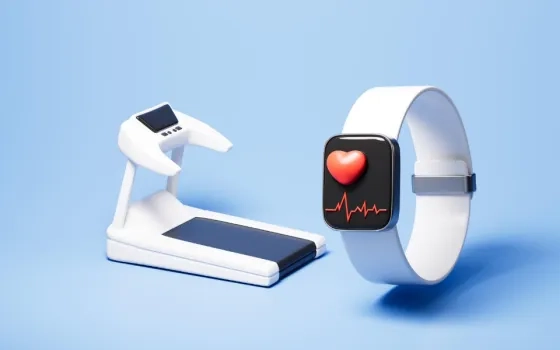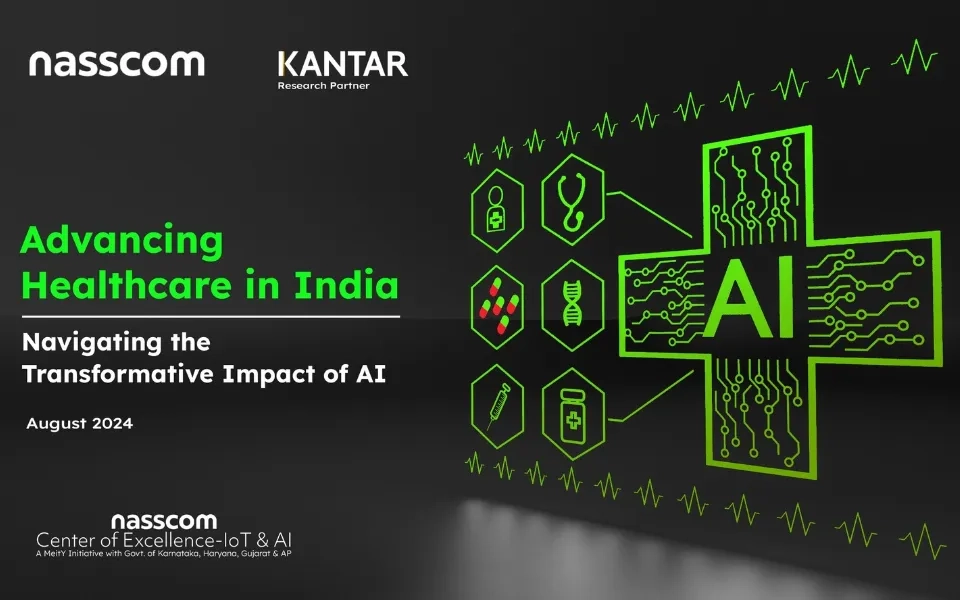
As a Senior Data Analyst with years of experience in the field, you’ve seen how data transforms industries. Now, with the growing demand for healthcare Data Analysts, you may be wondering how to transition or advance your career into this highly impactful and rewarding area. Being a healthcare data analyst offers a unique opportunity to improve patient care, optimize hospital operations, and contribute to the overall efficiency of the healthcare system. But what does it take to succeed in this field? In this blog, we'll explore the essential steps to become a successful healthcare data analyst and thrive in this exciting career.
What is a Healthcare Data Analyst
A healthcare data analyst specializes in gathering, analyzing, and interpreting complex data from healthcare systems. This role plays a crucial part in improving healthcare outcomes by ensuring data-driven decisions are made in hospitals, clinics, and healthcare organizations. From analyzing patient data to tracking healthcare trends, healthcare data analysts help organizations identify opportunities for improvement, reduce costs, and enhance patient care. They work with electronic health records (EHRs), patient management systems, insurance data, and more to uncover valuable insights that influence decision-making.
1. Understand the Role and Responsibilities
The first step toward becoming a successful healthcare data analyst is understanding the role’s scope. Here are the key responsibilities:
- Data Collection: You’ll collect data from various sources, such as patient records, lab results, medical claims, and insurance databases.
- Data Cleaning: Cleaning and organizing the data is critical. Raw healthcare data often contains errors, missing values, or inconsistencies that must be corrected.
- Data Analysis: Your job is to analyze the data to uncover trends, patterns, and insights that can help improve healthcare practices.
- Reporting & Visualization: The results of your analysis need to be presented clearly to healthcare professionals, stakeholders, and decision-makers.
- Collaboration: A healthcare data analyst works closely with doctors, nurses, IT teams, and business managers to translate data insights into actionable strategies.
2. Develop Core Skills for Healthcare Data Analysis
A successful healthcare data analyst needs a strong skill set in both technical and non-technical areas. Here’s a breakdown of the key skills you should focus on:
Technical Skills:
- Data Analysis Tools: Familiarize yourself with tools such as Excel, SQL, R, Python, and business intelligence (BI) platforms like Tableau or Power BI. These tools are commonly used to perform statistical analysis and create dashboards and reports.
- Healthcare Databases: Knowledge of healthcare-specific databases and systems, such as Electronic Health Records (EHR), Health Information Systems (HIS), and Clinical Data Warehouses (CDW), is a must.
- Data Modeling & Visualization: Being able to model data and create effective visualizations is essential in helping stakeholders easily understand complex healthcare data.
- Statistical Analysis: A background in statistics and the ability to apply statistical methods to healthcare data will help you draw meaningful conclusions and insights.
Non-Technical Skills:
- Communication: You’ll need to communicate your findings to non-technical stakeholders, including doctors and administrators, so strong communication skills are vital.
- Problem-Solving: Healthcare problems can be complex, and your ability to apply data insights to solve these problems will determine your success as a healthcare data analyst.
- Attention to Detail: Healthcare data must be accurate and precise. A small mistake can lead to serious consequences, so attention to detail is crucial.
3. Get the Right Education
While some healthcare data analysts may have a background in healthcare or medicine, many come from a variety of disciplines such as computer science, mathematics, or economics. However, you’ll need to obtain the right education to succeed in the role.
Educational Qualifications:
- Bachelor’s Degree: A bachelor’s degree in data science, computer science, healthcare informatics, statistics, or a related field is typically required to start your career.
- Master’s Degree (Optional): Many professionals opt for a master’s degree in healthcare informatics or data science to gain specialized knowledge and increase their chances of career advancement.
- Certifications: Consider pursuing certifications such as the Certified Health Data Analyst (CHDA) from the American Health Information Management Association (AHIMA). This certification will give you an edge in the healthcare industry and demonstrate your expertise in the field.
4. Gain Experience in Data Analysis
Becoming a successful healthcare data analyst requires hands-on experience in the field. If you are just starting, here are a few ways to gain relevant experience:
- Internships: Look for internships or entry-level roles in data analysis, especially those within healthcare organizations. Internships provide exposure to real-world problems and data, which can be a great learning experience.
- Volunteer Work: Consider volunteering your data analysis skills to nonprofit healthcare organizations. It’s a great way to build your portfolio and gain experience while contributing to meaningful causes.
- Freelance Projects: You can also work on freelance data analysis projects for healthcare startups or smaller organizations. These can help you build your resume and show potential employers your ability to apply data analysis skills in a healthcare setting.
5. Stay Up-to-Date with Healthcare Data Trends
The healthcare industry is constantly evolving, and staying updated on the latest trends and regulations is crucial to becoming a successful healthcare data analyst.
- Emerging Technologies: Keep an eye on new technologies such as machine learning, artificial intelligence, and big data analytics, which are transforming healthcare data analysis. Understanding how these technologies can be applied will give you a competitive advantage.
- Healthcare Regulations: Healthcare data is sensitive, and understanding the legal and ethical aspects is crucial. Familiarize yourself with regulations such as HIPAA (Health Insurance Portability and Accountability Act) and other privacy laws governing patient data.
- Networking: Join professional networks and communities for healthcare data analysts. Attending conferences and workshops will keep you in the loop on the latest industry developments.
6. Explore Job Opportunities
Once you have the right skills, education, and experience, it’s time to explore job opportunities. Healthcare organizations, hospitals, insurance companies, government health agencies, and healthcare technology firms all hire healthcare data analysts.
Types of Jobs in Healthcare Data Analysis:
- Healthcare Data Analyst: Focuses on analyzing patient data, hospital performance, and healthcare trends.
- Clinical Data Analyst: Specializes in managing and analyzing clinical trial data or patient health data to improve treatment outcomes.
- Business Intelligence Analyst (Healthcare): Works on gathering healthcare data from various sources to build reports and dashboards that assist healthcare management decisions.
- Health Informatics Specialist: Combines healthcare and data science knowledge to design systems that improve patient care and hospital operations.
7. Build a Strong Professional Network
Networking is an essential part of career advancement. Building relationships with other healthcare data analysts, IT professionals, and healthcare executives can open doors to new opportunities and provide valuable advice as you progress in your career. Attend industry events, connect with professionals on LinkedIn, and participate in relevant forums to enhance your professional connections.
8. Continue Learning and Growing
Even as an experienced healthcare data analyst, there’s always room to grow and learn. The field of healthcare data analysis is always evolving, and staying ahead means constantly updating your skills and knowledge.
- Take Advanced Courses: Many universities and platforms like DataMites, Skillfloor, and Skillogic Learning offer advanced courses in healthcare analytics and data science.
- Certifications and Training: Stay updated with certifications and training to demonstrate your commitment to improving your skills.
- Read Industry Publications: Follow blogs, journals, and publications related to healthcare data analysis to keep up with new developments in the field.
Becoming a successful healthcare data analyst is a rewarding journey that requires a combination of technical expertise, hands-on experience, and an understanding of the healthcare industry. Whether you're just starting your career or looking to transition into healthcare data analysis, following these steps will guide you toward success. By staying dedicated to continuous learning and gaining practical experience, you’ll be well on your way to making a positive impact in the healthcare field and advancing your career as a healthcare data analyst
















